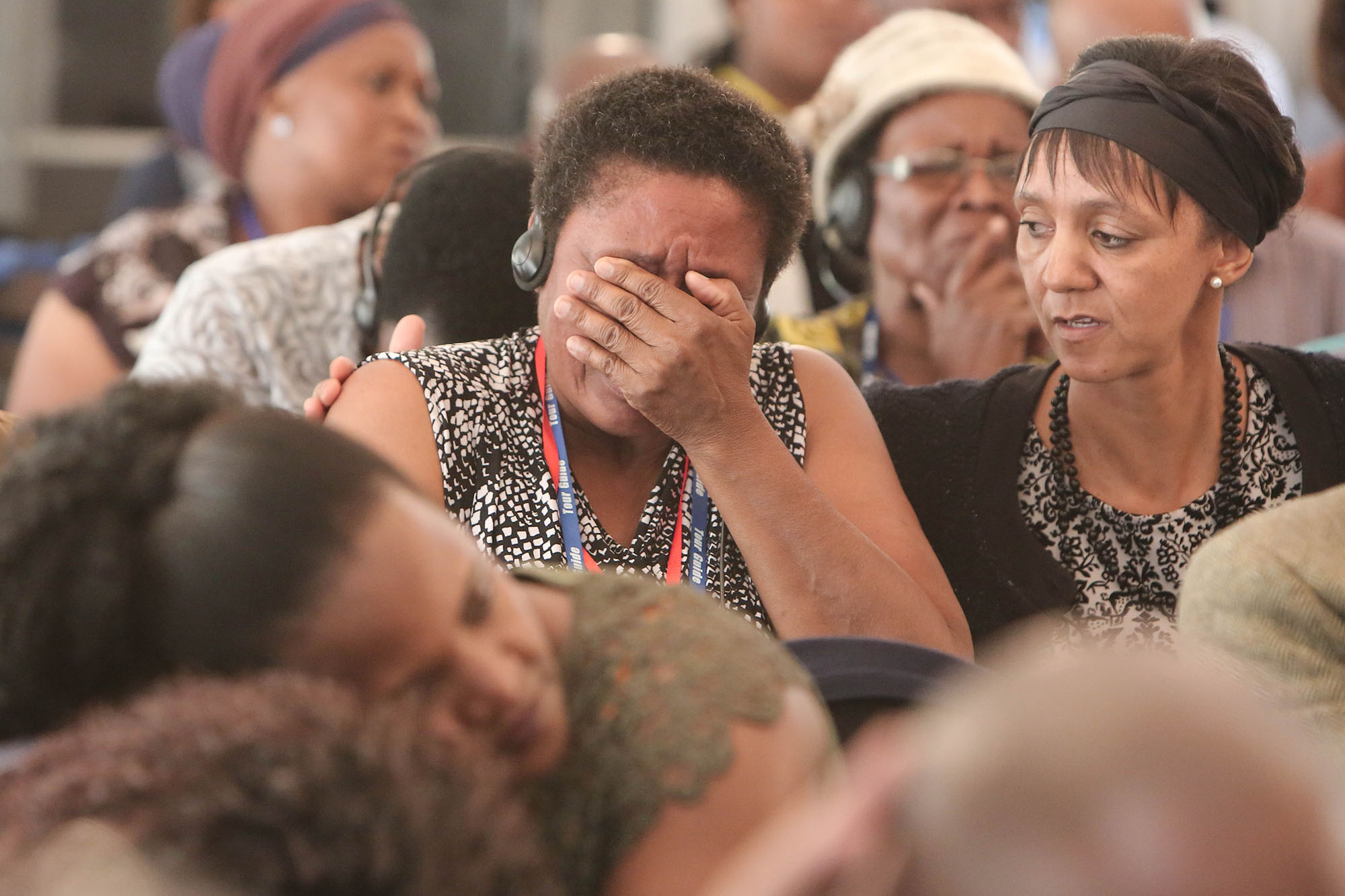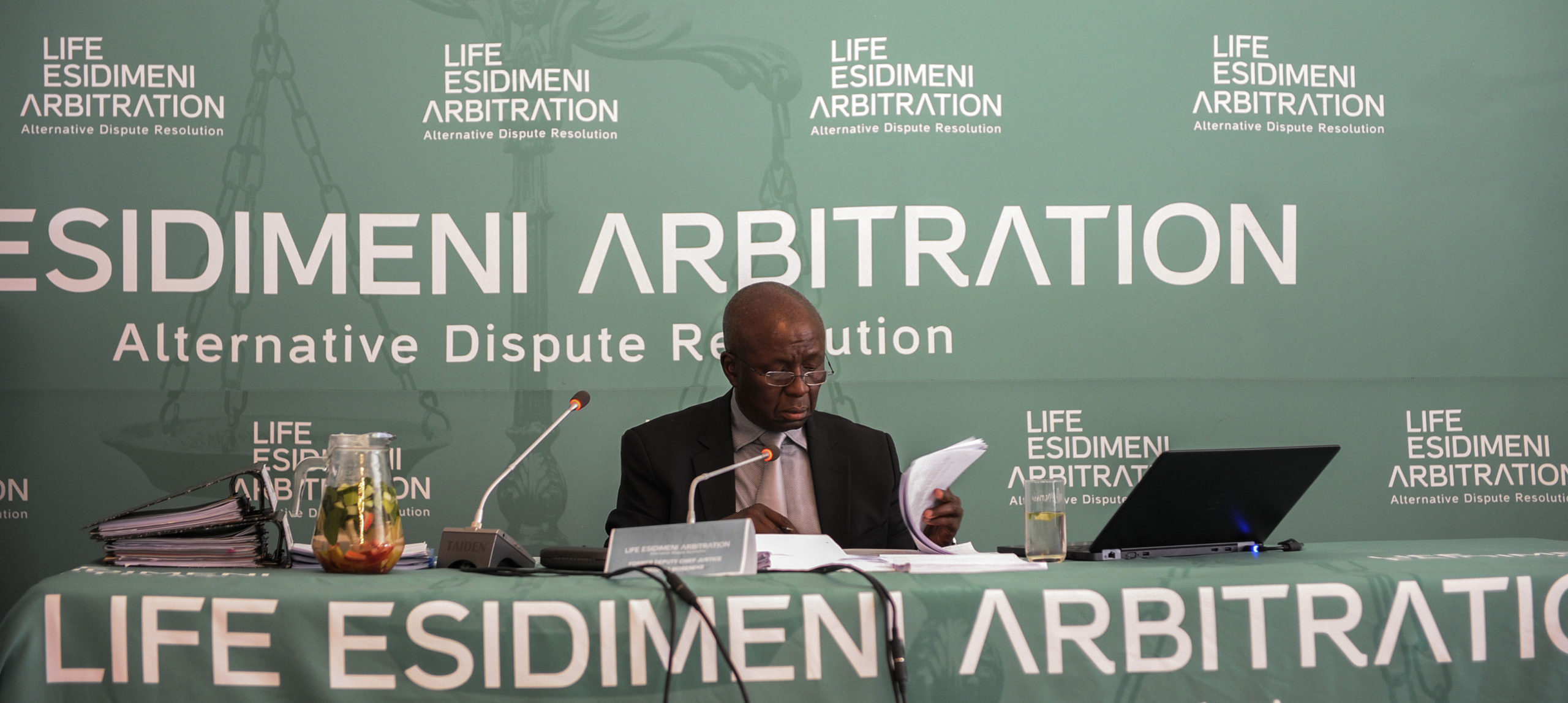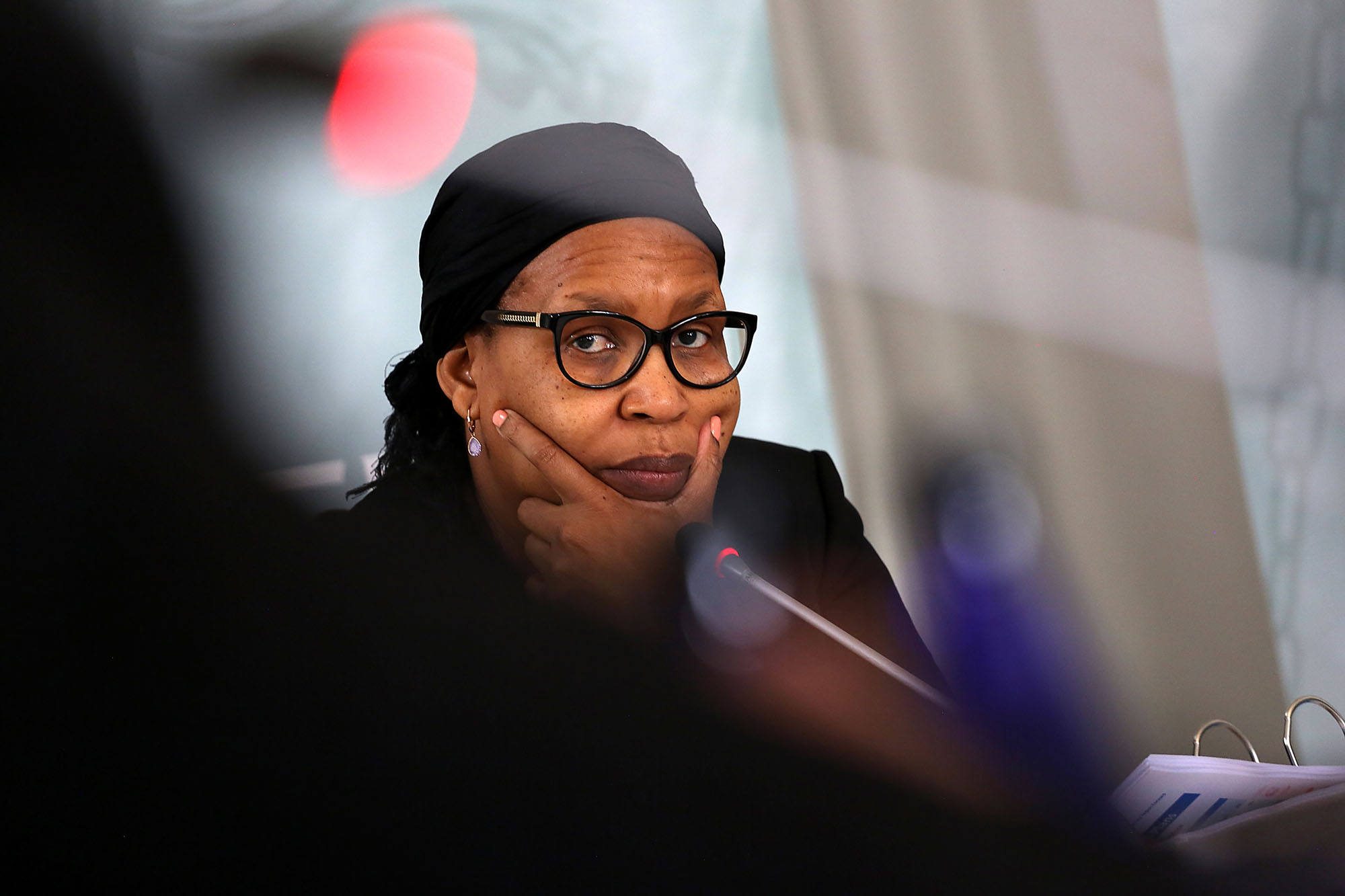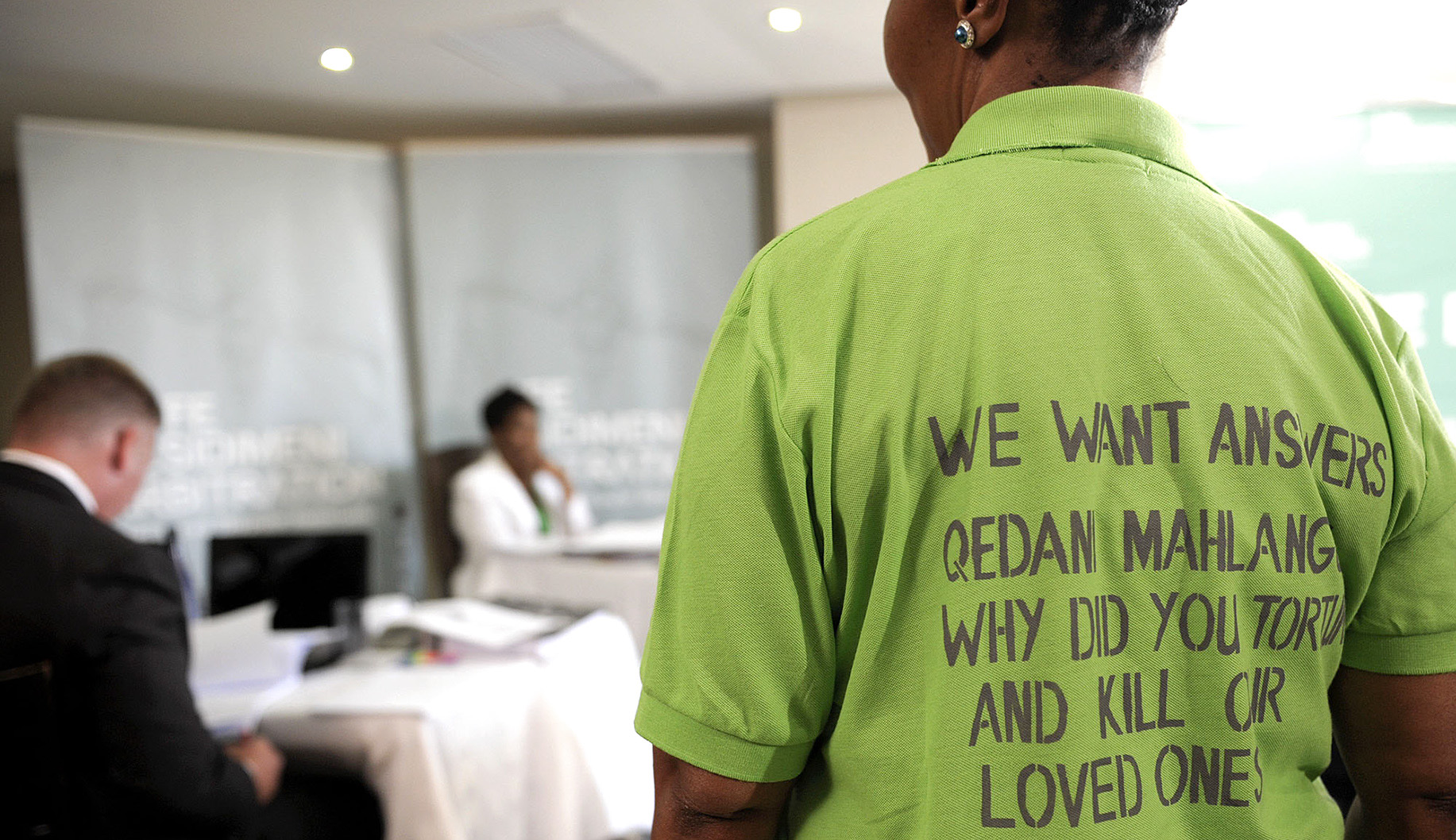The judicial inquest into the deaths of 144 mental healthcare users during the Life Esidimeni tragedy of 2016 began on 19 July 2021. After several false starts and procedural delays, with another six-week postponement announced this week, only four witnesses have testified before Judge Mmonoa Teffo in the South Gauteng Division of the High Court.
The fifth postponement since the start of the inquest signals a long road ahead for determining criminal accountability. Nonetheless, to achieve justice for the deaths of 144 mental healthcare users who were transferred from Life Esidimeni facilities into unlicensed NGOs during the Gauteng Mental Health Marathon Project of 2015-2016, the inquest remains a crucial process, even if it is taking longer than originally expected.
Proceedings have now been adjourned five times to allow for potentially implicated parties to secure legal representation and for their legal representatives to be brought up to speed about the case.
Despite these delays, several key themes have already emerged from the inquest.
Warnings ignored
One theme that has emerged is that civil society, family groups and doctors all warned the Gauteng Department of Health (GDoH) about the risks of such a mass transfer, but these warnings were ignored.
The first witness to testify at the inquest was the operations director of the South African Depression and Anxiety Group (Sadag), Cassandra Chambers. She testified that Sadag repeatedly warned officials in the GDoH of the risks associated with rushing the move of patients from Life Esidimeni into NGOs that were not suitably prepared.
Both Sadag and the South African Society of Psychiatrists (Sasop) wrote more than 12 letters asking for an audience and warning about the risks of rushing the process for these vulnerable patients. Despite countless rounds of correspondence from medical experts trained in mental healthcare, demonstrations and meetings with family groups and an urgent court application, the government went ahead with the Marathon Project.
Reflecting on the transfer to unprepared NGOs, Chambers said, “These were not normal proceedings. These patients should never have died from being moved from one facility to the next. These facilities were not adequate.”
Importantly, the court has admitted to the record the findings from the Alternative Dispute Resolution chaired by former Deputy Chief Justice Dikgang Moseneke, which detail gross human rights violations and conditions of suffering, neglect and torture the mental healthcare users experienced at unlicensed NGOs.
What Life Esidimeni said during the inquest
Two witnesses from the Life Esidimeni Hospital group also testified at the inquest. Dr Morgan Mkhatshwa was the managing director at the time of the transfer of patients and Zanele Buthelezi was the nursing manager.
 File photo: from 2018 Adila Hassim presented SECTION27s opening statement to the Life Esidimeni arbitration hearings. (Photo: Marius Sullivan)
File photo: from 2018 Adila Hassim presented SECTION27s opening statement to the Life Esidimeni arbitration hearings. (Photo: Marius Sullivan)
SECTION27’s legal representative, advocate Adila Hassim SC, cross-examined Mkhatshwa. During this cross-examination, it emerged that the Life Esidimeni hospital group was told to reduce the number of beds in 2015, but the GDoH was dissatisfied with its pace.
Mkhatshwa said that former Gauteng Health MEC Qedani Mahlangu cited budget cuts as the reason for reducing beds, but findings from Moseneke’s report following the arbitration hearings in 2018 showed that budget cuts were only for “non-essential” services and that health was regarded as an essential service “not liable for cost containment measures”.
Mkhatshwa said that Life Esidimeni could not cut its tariffs further, as this would compromise the quality of care for mental healthcare users. The costs of care at Life Esidimeni were subsidised by the broader Life group and kept low due to economies of scale. He said the Gauteng government promised that mental healthcare users would receive equal or better care at NGOs for less money, but this was not the case.
According to Mkhatshwa, Life Esidimeni wanted to vet the NGOs and make sure that they matched individual mental healthcare users’ needs, but the process was rushed and the government did not allow for a gradual transition of patients.
Mkhatshwa maintains that documentation, personal belongings, medicine and clothes for each patient were handed over to clinical representatives from the GDoH at the time of transfer, but the department said this was not always done.
 Family members during the Life Esidimeni arbitration.(Photo: Gallo Images / The Times / Alaister Russell)
Family members during the Life Esidimeni arbitration.(Photo: Gallo Images / The Times / Alaister Russell)
The Life Esidimeni representatives said they provided people who were transferred from Life Esidimeni to an NGO with medication for 28 days and if they were transferred to a hospital, they received seven days’ medication. However, some NGOs ran out of medication and did not have resources to replenish medicine stock. At times, NGOs also did not know what medicine patients were on and this contributed to ill-health.
Zanele Buthelezi’s evidence echoed this account. A professional nurse and former manager at Life Esidimeni at the time of the transfer, Buthelezi testified that up to 60% of the mental healthcare users at Life Esidimeni could not be transferred due to low mental functioning, risk of relapse and the need for structured full-time care. However, these mental healthcare users were still included in the transfers.
Buthelezi stressed that before the Marathon project patient transfers were done with trial periods to help mental healthcare users acclimatise. Since they are often vulnerable, it is critical to their well-being and to avoid the risks of relapse that they adjust slowly to a new environment. She said the first and second groups of mental healthcare users were transferred following proper and normal procedures, but with groups that followed there was a deviation from procedure and the process was rushed and haphazard.
Lists for patients to be transferred were changed, sometimes as late as the night before, said Buthelezi and patient assessments – which before the Marathon project, were done with multiple doctors over several hours – were done quickly to meet the government’s demand.
The Gauteng government’s first witness
Dr Richard Lebethe, who was the acting head of clinical services in the Gauteng Department of Health at the time of the transfer, was the first government witness to testify.
 Former Deputy Chief Justice Dikgang Moseneke at the Life Esidimeni arbitration hearings in 2018. (Photo: Joyrene Kramer)
Former Deputy Chief Justice Dikgang Moseneke at the Life Esidimeni arbitration hearings in 2018. (Photo: Joyrene Kramer)
Despite claiming he was too busy with other projects to have been centrally involved in the transfer of patients, it emerged under cross-examination that Sasop and Sadag sent at least two letters to him, former head of the Gauteng health department Dr Barney Selebano, former head of the mental health directorate Dr Makgabo Manamela and the former MEC Mahlangu about the risks of a mass discharge of patients.
Lebethe said he could not remember receiving these letters but could recall that many psychiatrists raised concerns in meetings with the mental health directorate prior to the transfer. Lebethe, however, acknowledged that transferring patients over only seven weeks was too short to do the project properly.
Lebethe’s cross-examination showed that the government was clearly disinterested in engaging with patient advocacy groups, who were labelled as “dishonest” by the department and rather than engage with civil society’s concerns, the government threatened to get private lawyers involved to silence them.
Passing the buck
Government officials and NGO owners have continued with blame-shifting and finger-pointing during the inquest.
 Former Gauteng Health MEC Qedani Mahlangu testifies during the Life Esidemeni arbitration hearings probing the deaths of at least 143 mentally ill patients on January 24, 2018 in Johannesburg, South Africa. (Photo: Gallo Images / Sowetan / Alon Skuy)
Former Gauteng Health MEC Qedani Mahlangu testifies during the Life Esidemeni arbitration hearings probing the deaths of at least 143 mentally ill patients on January 24, 2018 in Johannesburg, South Africa. (Photo: Gallo Images / Sowetan / Alon Skuy)
Mahlangu’s legal representatives, for example, reiterated their stance from the arbitration, insisting that she was not personally responsible for the deaths and that she was acting on the orders of Gauteng Premier David Makhura to reduce costs by transferring patients to NGOs. It seems Mahlangu is intent on passing the buck for how the project was implemented.
Legal representatives for Manamela adopted a similar approach by blaming officials, both senior and junior, for the events that led to the deaths of mental healthcare users.
Since the start of the inquest in July, the various adjournments, delay tactics and lengthy periods of cross-examination may work in favour of those who would want to avoid possible future prosecution. But the facts of this tragedy remain: 144 mental healthcare users died in the care of the government following the decision of the provincial health department to move them into the care of ill-equipped NGOs.
A long road ahead
Proceedings are set to resume in mid-November and it is crucial that administrative and logistical bottlenecks be resolved so that the process can continue and run more efficiently. There are more than 25 witnesses still expected to testify, including Levy Mosenogi, who was the project manager of the transfer; members of the mental health directorate within the GDoH; various NGO owners; experts on psychiatric care and some bereaved family members and eventually high-ranking officials within the GDoH.
We hope that the court will see past the theatrics during the inquest so far. The process of accountability began with the arbitration almost four years ago to the day – 9 October 2017 – and the inquest proceedings are set to continue well into 2022. In a process as drawn-out as this one, littered with delays and legal technicalities, we must not lose sight of what happened during the Life Esidimeni tragedy and the memory of the lives lost must remain central to what happens going forward.
At the end of this inquest Judge Teffo is expected to compile a report confirming the identity of each of the mental healthcare users who died following the rushed transfer, determine the date of each of their deaths and finally make findings on the legal causes of death for each of the deceased. This last finding is important because by determining if there was any criminal offence or negligence by state actors or NGO owners which contributed to the deaths, it is hoped that those responsible for the deaths can be held criminally accountable in the future. DM/MC
*Chaskalson is a research and advocacy officer at SECTION27.
**This article is part of Spotlight’s Mental Health special series.
Note: This article is written by an employee of SECTION27. Spotlight is published by SECTION27 and the Treatment Action Campaign but is editorially independent – an independence that the editors guard jealously. The views expressed in this article are not necessarily shared by Spotlight.
This article was published by Spotlight – health journalism in the public interest.





 Former Gauteng Health MEC Qedani Mahlangu testifies during the Life Esidemeni arbitration hearings probing the deaths of at least 143 mentally ill patients on January 24, 2018 in Johannesburg, South Africa. (Photo: Gallo Images / Sowetan / Alon Skuy)
Former Gauteng Health MEC Qedani Mahlangu testifies during the Life Esidemeni arbitration hearings probing the deaths of at least 143 mentally ill patients on January 24, 2018 in Johannesburg, South Africa. (Photo: Gallo Images / Sowetan / Alon Skuy) 